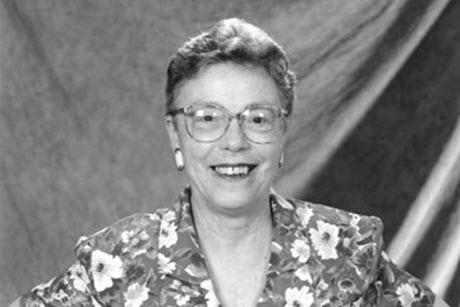Women in Law Leadership: Esther Clark, A Leader Remembered

The RWU Law annual Women in Law Leadership Lecture is almost here. We can look forward to the speaker, Amy Barasch, reflecting on a thought-provoking topic. The winners of the Ruth Bader Ginsberg Essay Contest for elementary, middle, and high school students on the topic of “How has Justice Ruth Bader Ginsburg (RBG) inspired me?” will also be announced at the lecture.
Both the esteemed speaker and the late Justice Ginsberg are excellent examples women in law leadership. However, this week let’s reflect on an early woman in law leadership from RWU Law’s history.
Esther Frances Giaccio Clark
When Professor Clark first started teaching at RWU Law in 1994, her record as a leader was secure. She came to RWU Law officially as a Distinguished Visiting Professor. Her regular faculty position was at Widener University School of Law. However, she loved RWU Law so much, she retired from Widener when Widener could not accommodate her schedule at RWU Law.
From the beginning of her career in law, she was a leader. One of only two women in her class at Rutgers University Law School (Camden) in 1955, she was also an associate editor of the Law Review. After graduating, she practiced criminal defense law in Delaware County, Pennsylvania. In the eulogy delivered at her funeral service, it was said “[R]umor has it that many prosecutors, when hearing that Esther was the defense attorney, would suddenly have more pressing matters than opposing her in a courtroom.”
She was named "Man of the Year" by Delaware County Bar Association in 1980 and the recipient of the Anne X. Alpern Award from the Pennsylvania Bar Association in 1996. In 1982, she became the first women elected President of the Delaware County Bar Association in its more than 100 year history.
As an academic, she became the first woman to receive tenure at Widener University School of Law and was a five-time recipient of Widener’s Outstanding Faculty Member Award. After coming to RWU Law, she received the first faculty teaching award in 1999.
She understood the value of a life outside work and was beloved a wife, mother, and grandmother. She was colleague, mentor, advisor, and friend and is still remembered by some here at RWU Law as more than just the name of the Moot Court Competition.
Her legacy continues in the work of her former students and this law school.
For more information about Professor Clark, see the Fall 2002 Issue of AMICUS.
Library Blog

